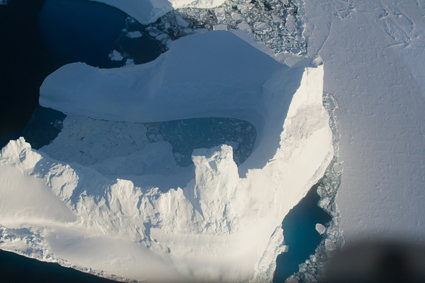 The worldwide publicity surrounding the calving of A-68, the 5,800-km2 iceberg shed in July from the Larsen C Ice Shelf, presents a unique and time-sensitive research opportunity. This event and other ice-shelf losses (e.g., from Larsen A and B, Wilkins, Wordie) are harbingers of warming effects along the Antarctic Peninsula in particular, and ultimately around all of Antarctica.
The worldwide publicity surrounding the calving of A-68, the 5,800-km2 iceberg shed in July from the Larsen C Ice Shelf, presents a unique and time-sensitive research opportunity. This event and other ice-shelf losses (e.g., from Larsen A and B, Wilkins, Wordie) are harbingers of warming effects along the Antarctic Peninsula in particular, and ultimately around all of Antarctica.
To address some of the issues surrounding ice shelves and their associated ecosystems in a warming world, a workshop on “Antarctic Ecosystem Research following Ice Shelf Collapse and Iceberg Calving Events” is being held at Florida State University, Coastal and Marine Laboratory, on 18 and 19 November 2017. This workshop is being organized by Drs. Jeroen Ingels (Florida State University), Rich Aronson (Florida Institute of Technology), and Craig R. Smith (University of Hawaii at Manoa).
The aim of this workshop is to gather a group of researchers with a diversity of expertise in Antarctic biological, ecological, and ecosystem sciences to share knowledge, identify important research priorities and knowledge gaps, and outline strategic plans for biological/ecological research to advance understanding of the continent-wide changes that Antarctic ice shelves and associated ecosystems will experience in response to warming. The workshop will provide an opportunity to synergize efforts in investigating Antarctic ecosystems under the direct and indirect effects of ice-shelf collapse, and climatic warming in general. The primary product will be a position paper focusing on ideas, hypotheses, and priorities for investigating the ecological impacts of ice-shelf collapse along the Antarctic Peninsula.
For more information on the workshop, and details of how to register, please see the Workshop Invitation.
